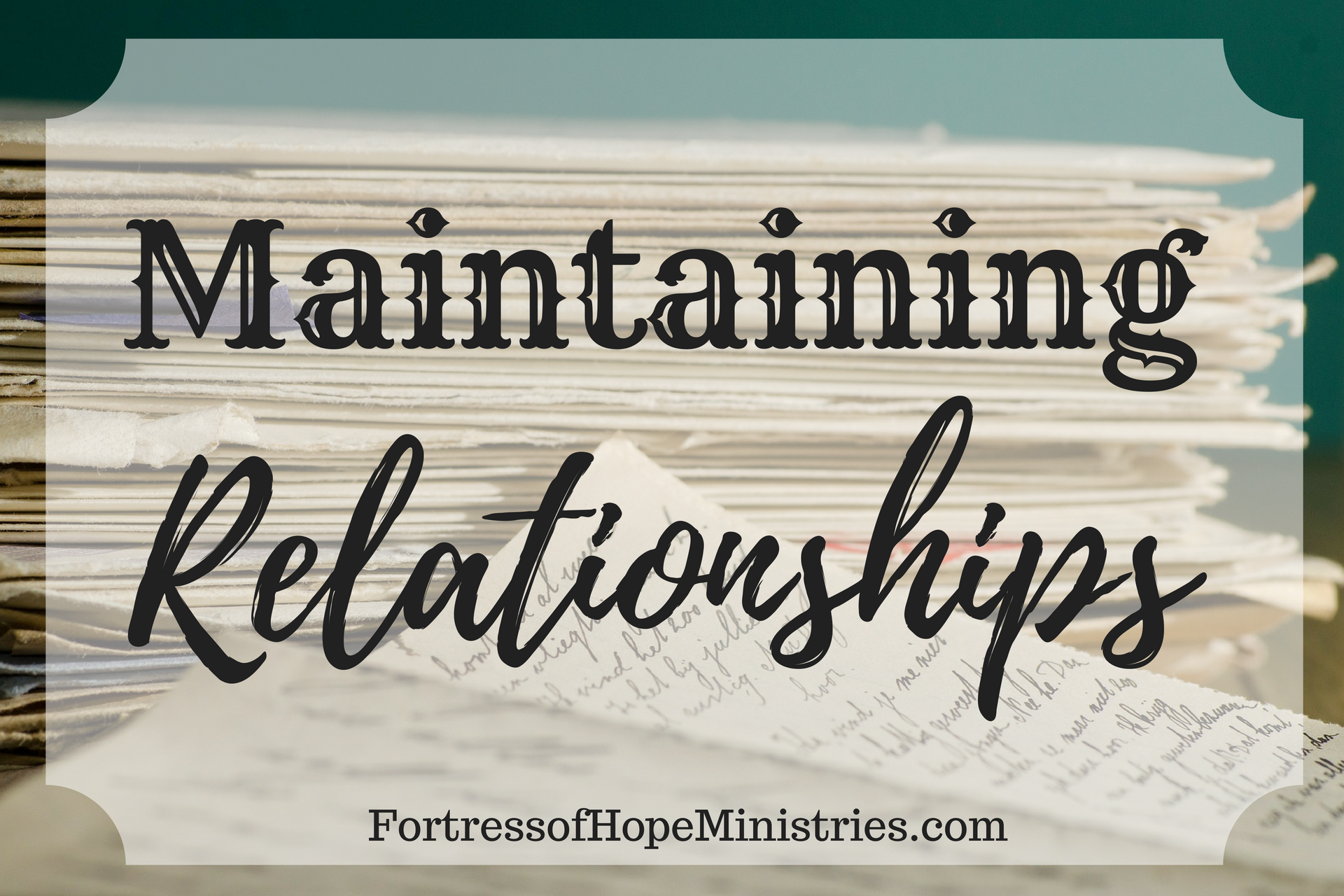Shortly after my son’s arrest, I learned that he needed to know that he had family on the outside who loved and supported him while he’s inside.
Every person has an innate desire to be loved and accepted—including inmates. Just because they live behind razor wire and concrete walls doesn’t mean that their hearts turned to stone. All people desire to accepted into a community.
Everyone wants a family. In prison, inmates may find new families in the form of prison gangs. I’ve read stories of inmates who develop such strong bonds in their prison gang relationships that they are willing to forsake their outside family relationships. The prison gang related activities on the inside hinders parole eligibility or worse, additional crimes are committed for which they receive more time.
Sadly, I have learned that there are some inmates who have damaged their family relationships to the point that it is not feasible or even safe for family members to maintain a relationship. In that case, let’s pray that those inmates find godly influences in their lives and healing for the wounded family members.
For all others families, it is important for us to nurture meaningful relationships with our incarcerated loved one. This shows them they belong to a loving and caring family. It gives them hope and inspires them to make good choices knowing they will be welcomed home upon release.
Maintaining meaningful relationships with our incarcerated family members keeps them encouraged.
The writer of Hebrews wrote, “But encourage one another day after day as it is still called ‘Today,’ so that none of you will be hardened by the deceitfulness of sin” (Hebrews 3:13 NASB).
Over the past years, I have learned some key points on maintaining a meaningful relationship with my son on the inside. I share these with you.
1. Be transparent and honest about what’s happening in our lives on the outside.
After our son was sent to the state penitentiary, each of us in his immediate family faced surgeries–first his father had surgery to repair an injured shoulder, his brother had three sinus surgeries, and I was diagnosed with melanoma and had it surgically removed. We were transparent with him about our difficult situations and avoided any attempts of “protecting” him from these trials we faced. We asked him for his prayer support. And we shared our joys together with him when these all passed.
2. Discuss his responsibility to be a model inmate.
Though we do not fully understand all the situations he faces on inside, we ask him to apply biblical truths to each challenge he faces. He shares testimonies of how he sees the Lord working in and through his life as he is obedient to the Lord.
3. Encourage him to attend regular chapel service and Christian classes.
Our son is very involved in a Christian ministry that comes every other weekend to conduct services. He has created a good fellowship with the 30 to 35 Christian brothers who attend that fellowship. Also, our son has the utmost respect for the chaplain who has comes to minister twice a month for the past three years. For that we are grateful for prison ministries!
Maintaining a meaningful relationship with our incarcerated loved one takes effort. Our family member needs the strong family relationship to make it through the days they have on the inside. And they will need the strong family relationships to lean on when they walk out of those prison doors.
How do you maintain a relationship with your incarcerated loved one and keep him (or her) encouraged?

